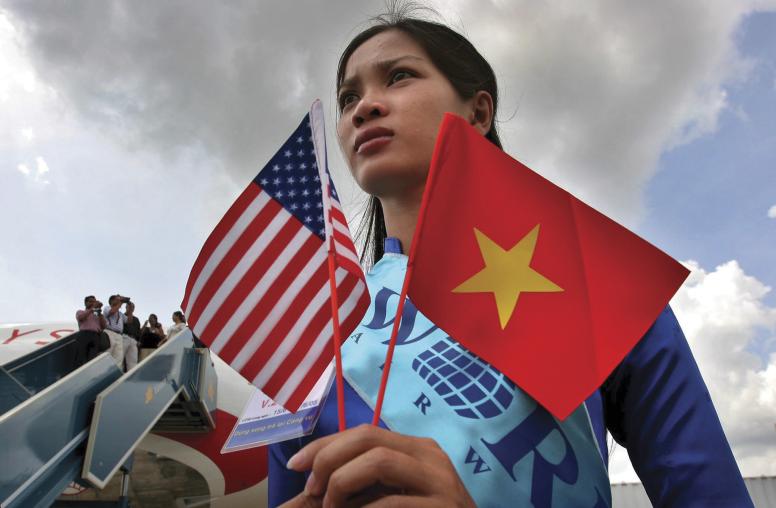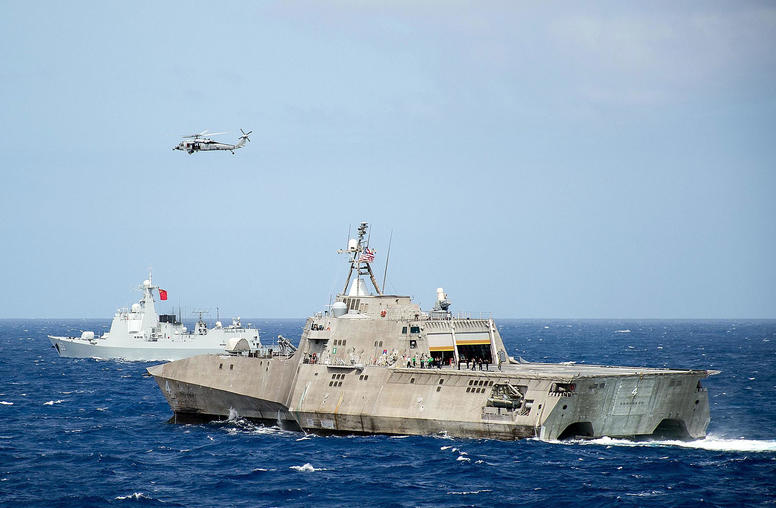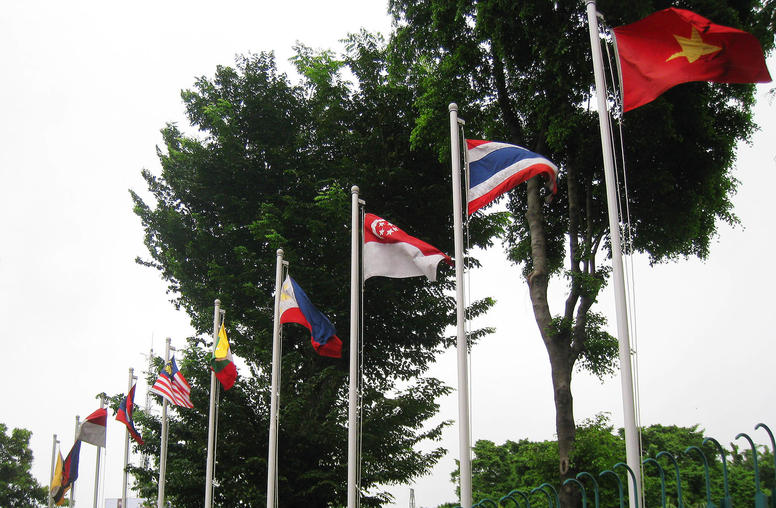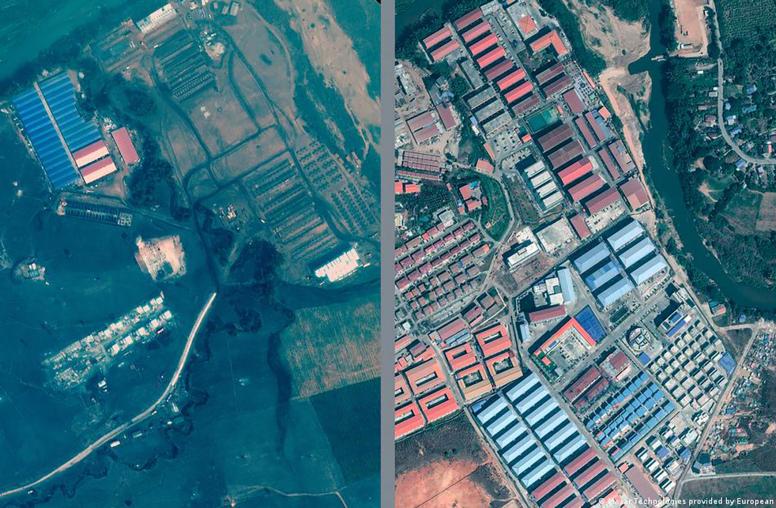 Vietnam
Vietnam
2025 marks the 50th anniversary of the end of the Vietnam War and the 30th anniversary of diplomatic relations between the United States and a unified Vietnam. The postwar U.S.-Vietnam relationship has traveled an extraordinary road, from embargo and isolation to a comprehensive strategic partnership with cooperation across a range of economic, social and defense domains in the interest of both countries.
The U.S. Institute of Peace engages in research and public education to build trust among Americans and Vietnamese, including veterans from both countries, families of missing service members, youth, and the Vietnamese diaspora. USIP’s Vietnam War Legacies and Reconciliation Initiative supports cooperation to address the ongoing physical and societal effects of war that have become a foundation of the U.S.-Vietnam relationship. USIP also includes Vietnam in its work to counter transnational crime and prevent violent conflict across East and Southeast Asia. These efforts contribute to a strong and effective U.S. partnership with Vietnam and to peace and security across the Indo-Pacific region.
Learn more in USIP’s fact sheet on the Current Situation in Vietnam.
Featured Event
- 3rd Annual Dialogue on War Legacies and Peace in Vietnam, Laos and Cambodia
- The Outlook for Vietnam in 2025
Recent Analysis
- Biden’s Trip to Vietnam Highlights Two-Way Partnership
- Piecing Together the Fragments of Memory to Find Vietnamese War Dead
- It Is Time to Account for All Missing Vietnamese
Featured Research & Analysis

Andrew Wells-Dang on Youth’s Role in the Future of U.S.-Vietnam Reconciliation
The legacies of the Vietnam War were once an obstacle to U.S.-Vietnam relations. But today, addressing those legacies has become “key foundation” for bilateral cooperation, says USIP’s Andrew Wells-Dang. And as ties continue to grow, youth from both countries “have a new vision for how our countries can work together.”

Pathways to Reconciliation: How Americans and Vietnamese Have Transformed Their Relationship
The road to reconciliation between the United States and Vietnam has not been a straight or easy one. In the years following the Vietnam War, citizen diplomats—veterans, families of the missing, humanitarians, Vietnamese Americans, and others—led the way, reaching across geopolitical and ideological lines. Governments eventually followed, and the two countries normalized diplomatic relations in 1995. This report draws on the theory and practice of reconciliation to identify lessons for strengthening the US-Vietnam partnership and advancing reconciliation between other postconflict countries.

In Vietnam, Excavating the Past Can Help Heal the Losses of War
Since 2021, USIP’s Vietnam War Legacies and Reconciliation Initiative has contributed to stronger U.S.-Vietnam relations through research, communications and exchange about ongoing legacies of war in Indochina. One of our priorities is the location and identification of missing persons from all sides of the war — work that is being led by American and Vietnamese citizens together with both countries’ governments. An estimated 300,000 Vietnamese families are still waiting for information about the location of their loved ones lost in the war.
Current Projects

Crisis Communications with China in the Indo-Pacific
In today’s era of strategic competition between the United States and China, crises are more likely than ever in the Indo-Pacific region. Effective mechanisms are therefore needed to prevent such crises from escalating into armed conflict. To this end, USIP is examining crisis communication mechanisms and negotiations between China and its regional neighbors to identify common issues and themes across countries to provide lessons that can be learned and shared.

Southeast Asia in a World of Strategic Competition: An Essay Series
Great power rivalry between the United States and China is frequently described in bilateral terms, with regions of the world — including Southeast Asia — merely serving as arenas of competition. But this framing ignores the agency of third countries in managing the risks and opportunities presented by this competition. To explore these countries’ agency and the corresponding policy options, this USIP essays series includes contributions from 10 Southeast Asia-based experts. Each essay provides one country’s perspective on how the members of the Association of Southeast Asian Nations (ASEAN) perceive and respond to strategic competition between the United States and China.

Transnational Organized Crime in Southeast Asia
Over the past decade, Southeast Asia has become a major breeding ground for transnational criminal networks emanating from China. USIP assembled a senior study group to assess one of the most pernicious aspects of such criminality: rapidly spreading, industrial-scale scam compounds that rely on forced labor lured from around the world. The senior study group convened four meetings to share research and information on the trends, dimensions and character of the criminal networks operating the scam compounds and developed recommendations for countering their malign effects.